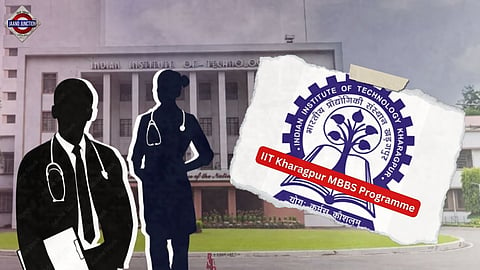

IIT Kharagpur has announced that it will be launching MBBS course. According to some media reports, the director of IIT Kharagpur VK Tiwari has confirmed this by saying that, the MBBS course in medicine will be started at BC Roy Institute of Medical Science and Technology.
The plan going forward was also explained as a dual degree programme will be introduced in the institute, in which students will be able to do BTech and MTech courses simultaneously. Also, a four-year bachelor’s degree programme in science will also be started at IIT Kharagpur. The director of the IIT Kharagpur told that, “In the UG and PG courses, the choice of electives has been broadened. Further, interdisciplinary dual-degree programmes have been introduced.
The changes which will come in the course with these decisions is that, earlier UG courses used to include a summer internship of eight weeks, now it can be extended to a research internship of eight months; with this another change which has come here is that, there will be a provision for an internship for PG courses as well.
The director of IIT Kharagpur also informed that, the institution also set up an international student office, and is making efforts to increase the admission of international students.
What changes has been brought by the other institutions according to New Education Policy (NEP)?
After the changes announced by IIT Kharagpur, the other big institutions such as institutions in Andhra Pradesh and other Universities met in Tirupati’s SV University Senate Hall to discuss about the progress and future plans concerning the implementation of NEP 2020 at the varsities.
Whereas, several universities announced adoption of an open curriculum and transdisciplinary course structures. According to some media-reports the director of IIT-Tirupati, Mr. Satyanarayana highlighted the value of multidisciplinary education, value-based instruction, and expanded internship possibilities as per the policy.
He further said that, skill development, and community-oriented projects ensured an emphasis on nation-building that was desperately required. While the universities Vice-chancellors Raja Reddy and D Bharathi emphasised the policy’s university-industry connectivity, and community participation.
